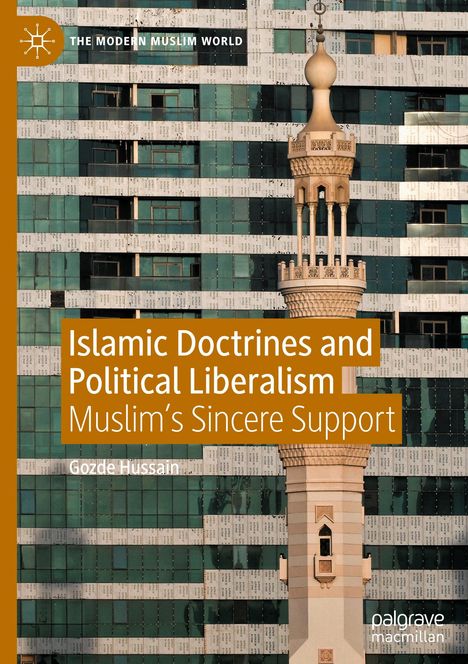Gozde Hussain: Islamic Doctrines and Political Liberalism, Gebunden
Islamic Doctrines and Political Liberalism
- Muslim's Sincere Support
(soweit verfügbar beim Lieferanten)
- Verlag:
- Springer International Publishing, 11/2024
- Einband:
- Gebunden, HC runder Rücken kaschiert
- Sprache:
- Englisch
- ISBN-13:
- 9783031722660
- Artikelnummer:
- 12106345
- Umfang:
- 272 Seiten
- Gewicht:
- 466 g
- Maße:
- 216 x 153 mm
- Stärke:
- 20 mm
- Erscheinungstermin:
- 14.11.2024
- Hinweis
-
Achtung: Artikel ist nicht in deutscher Sprache!
Klappentext
This book delves into the compatibility of Islam with liberal values, engaging in a comparative analysis of Islamic moral language and John Rawls's liberal democratic ideas. Rawls, a prominent modern liberal political philosopher, posits that diverse moral and religious doctrines in a pluralistic society should align with the principles of a liberal democratic political culture. The author shares Rawls's assumptions and maps out a spectrum of Islamic orthodoxy positions to assess the plausibility of reconciling Islamic doctrines with a liberal political order. While acknowledging that such compatibility is not the mainstream outlook, the book argues that it's feasible through reasonable interpretations of Islamic sources. The central question addressed is the realism of observant Muslims endorsing a liberal democratic state from within their doctrinal tradition. By examining a range of Islamic orthodoxy positions, the book demonstrates that Muslims can theoretically find Islamic reasons, rooted in acceptable interpretations of divine sources, to justify their commitment to a liberal state. Furthermore, it provides moral reasons and strategies for the liberal state to address incompatible Islamic doctrines, ensuring Muslims can maintain religious practices without an Islamic political authority. This theoretical framework offers insights for future empirical and theoretical studies on Muslims navigating pluralistic liberal societies, making it a vital contribution to the discourse on Islam and liberalism.

